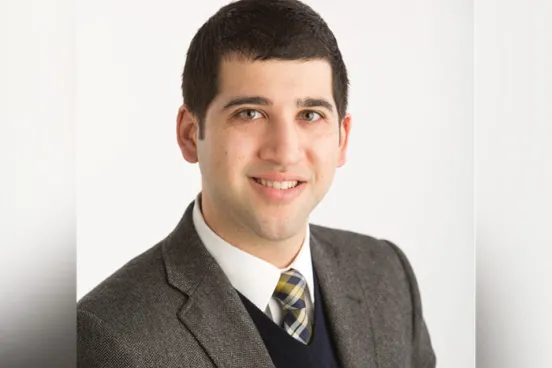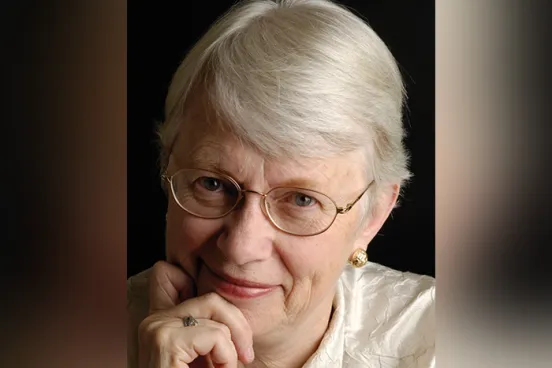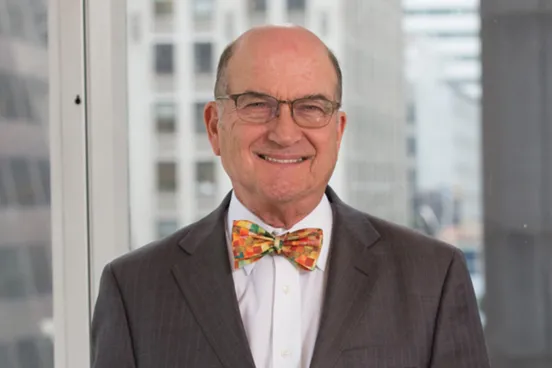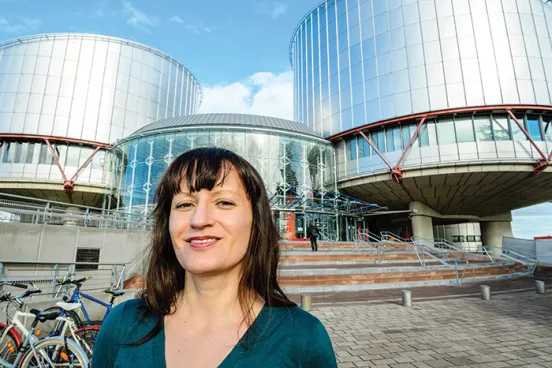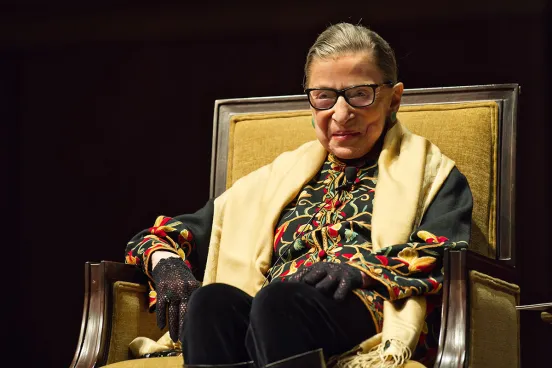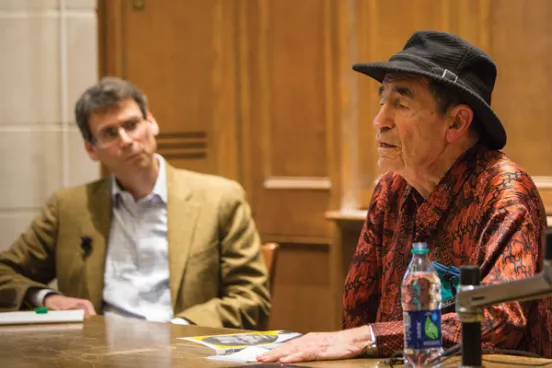In April, the Law School hosted the official delegation of the Court of Justice of the European Union (CJEU) for a three-day visit. Thirteen members of the EU’s highest court met with faculty, students, the Michigan Supreme Court, and judges from the U.S. Court of Appeals for the Sixth Circuit and the U.S. District Court for the Eastern District of Michigan.
The historic visit was part of exchanges between the CJEU and the U.S. Supreme Court that recently have become known as the Luxembourg Forum. Daniel Halberstam, director of the Law School’s European Legal Studies program and a founding member of the forum’s academic steering committee, has facilitated the meetings on both sides of the Atlantic since their inception nearly two decades ago, and led the effort to bring the CJEU to Ann Arbor.
Michigan was a natural destination given the Law School’s strong tradition of comparative and international law scholarship, including EU law. “But the real draw for the European court was far broader,” says Halberstam, who is the associate dean for faculty and research and the Eric Stein Collegiate Professor of Law. “We engaged our entire academic community, as well as state and federal judges, many of whom do not usually grapple with comparative or international questions.”
Several members of the CJEU, including its president, Koen Lenaerts, had visited campus previously. In addition, many Michigan Law students have worked at the CJEU, with several graduates serving as permanent law clerks. Sinisa Rodin, LLM ’12, currently a judge on the CJEU, joined the delegation in Ann Arbor.
Students interacted with the judges at a panel on judicial appointments featuring the Hon. Ray Kethledge, ’93, of the U.S. Court of Appeals for the Sixth Circuit, Michigan Supreme Court Justice Bridget Mary McCormack (who formerly served on the Michigan Law faculty), and the Hon. Camelia Toader of the CJEU.
During the visit, more than half of the Michigan Law faculty engaged with the judges in intensive seminars on substantive issues held under Chatham House Rule, which kept the details private and the dialogue authentic.
“Working through difficult cases on equal protection, extraterritorial jurisdiction, the right to travel, and statutory construction with this group was revealing for those who had never considered foreign approaches, and deepened understanding for those with a comparative background,” says Halberstam. Catharine A. MacKinnon, the Elizabeth A. Long Professor of Law, says, “It was a rare privilege to interact with these members of the Court off the record, up close, and personally. The meetings were enlightening, engaging, and productive; the social events were both substantive and inspiring.”
The visit also featured keynote addresses by Lenaerts and Michigan Law faculty James C. Hathaway and Bill Miller. (Hathaway is the James E. and Sarah A. Degan Professor of Law and director of the Program in Refugee and Asylum Law; Miller is the Thomas G. Long Professor of Law.) Virginia Stein, the widow of Eric Stein, who pioneered the study of EU law at Michigan in the 1950s, provided an impromptu and heartfelt welcome at the opening dinner, which included U-M President Mark Schlissel and members of the U-M Board of Regents.
The delegation further enjoyed a performance by faculty and alumni of U-M’s School of Music, Theater, and Dance; an architectural tour of Detroit led by faculty from U-M’s Taubman College of Architecture and Urban Planning; and a panel about Detroit’s bankruptcy held at the Detroit Institute of Arts, which included Michigan Law faculty, the Hon. Gerald Rosen (the principal mediator), and the Hon. Steven Rhodes, ’73 (the presiding bankruptcy judge).
After leaving Ann Arbor, the Luxembourg Forum moved to Washington, D.C., where the European delegation met for substantive talks with judges of the U.S. Court of Appeals for the D.C. Circuit and, separately, with the justices of the U.S. Supreme Court.


